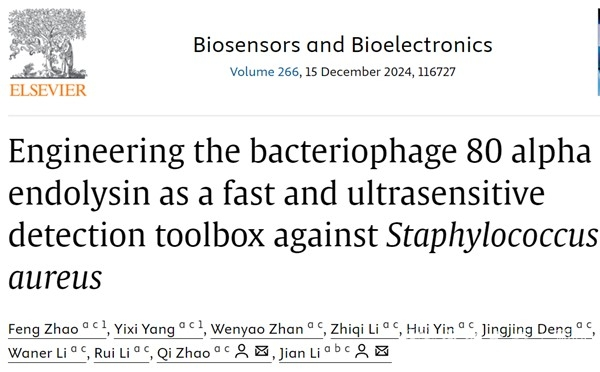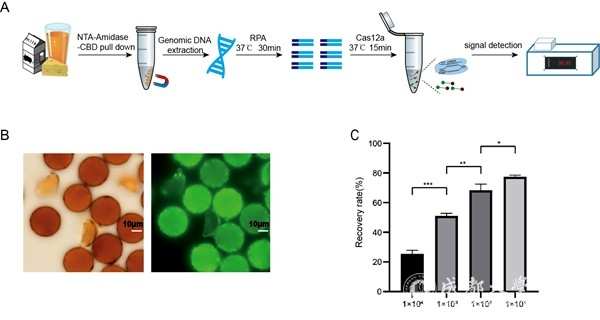Recently, Professor Li Jian from Chengdu University's Chemistry & Biology Cross-innovation Team for Natural Products published research results on engineering the bacteriophage protein as a fast detection toolbox against Staphylococcus aureus in the prestigious international academic journal Biosensors & Bioelectronics (SCI-JCR Zone 1, TOP Journal).

The widespread dissemination of drug-resistant pathogens poses a significant threat to public health and has the potential to trigger a global health crisis. Fast detection technique allows for the timely identification of pathogen types and drug resistance, thereby reducing unnecessary antibiotic use, preventing the spread of drug-resistant pathogens, and improving treatment efficacy. However, traditional detection methods are often time-consuming or rely on specific instruments, severely limiting the efficient detection of these pathogens.

To address these challenges, the study engineered bacteriophage endolysin highly specific to the host to obtain molecules capable of efficiently capturing the S. aureus at concentrations as low as 1 x 10² CFUs/mL. Then, recombinase polymerase amplification (RPA) was exploited to amplify the nuc gene of S. aureus at ambient temperature. The RPA product activated Cas12a endonuclease activity to cleave fluorescently labeled ssDNA probes. Finally, a portable, self-assembled instrument with independent intellectual property rights was utilized for ultrasensitive visualization detection. The entire procedure, from isolation to identification, can be completed within 2 hours, making it applicable for other types of nucleic acid-based fast and ultrasensitive detections.
This study was funded by the General Program of National Natural Science Foundation of China, the Sichuan Provincial Natural Science Foundation, and the Science and Technology Program of Tibet Autonomous Region.
Link: https://www.sciencedirect.com/science/article/abs/pii/S0956566324007334